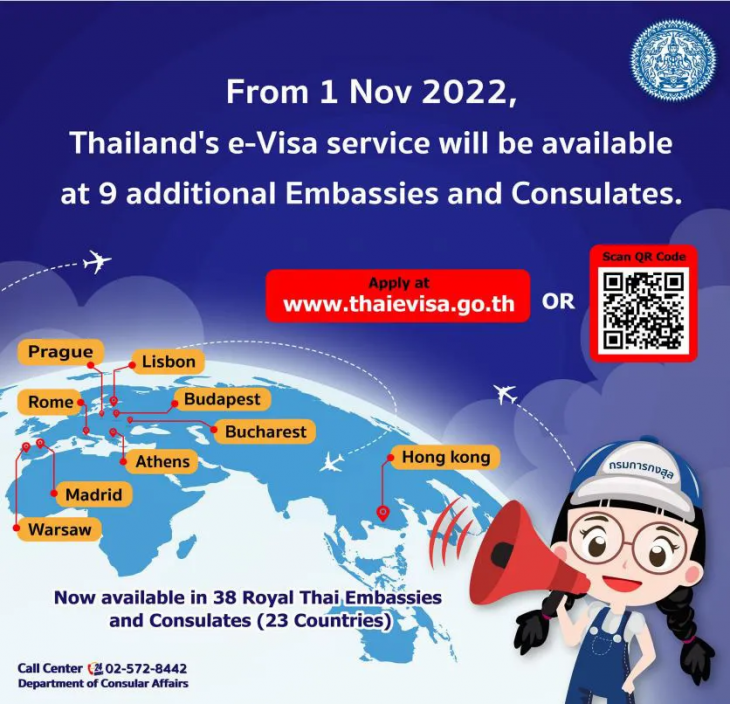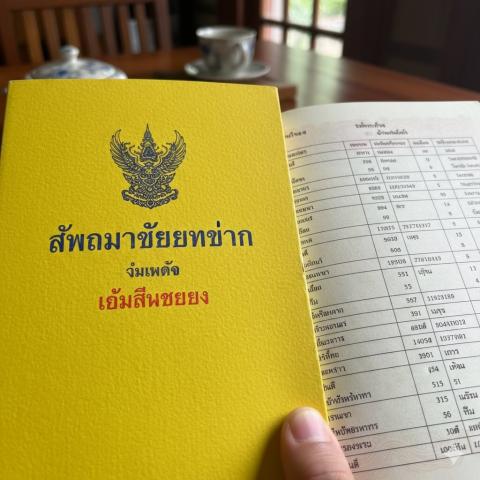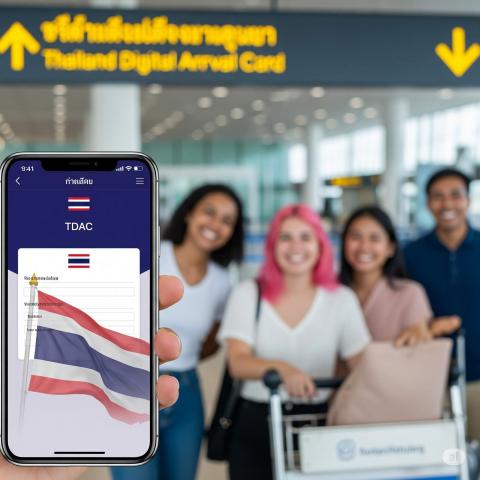Thailand E-Visa: A Guide for Foreigners
Planning a trip to the Land of Smiles? Understanding Thailand's e-visa system is crucial for a smooth entry. This guide provides key information for foreigners.
Understanding the Thailand E-Visa
The Thailand e-visa is an online system allowing eligible foreign nationals to apply for their Thai visa electronically, streamlining the application process. It aims to simplify travel for tourism, business, and other approved purposes. Instead of visiting an embassy or consulate in person for a visa sticker, applicants can fill out the form and submit necessary documents online. If approved, the e-visa is sent electronically.
It's important to note that not all visa types or nationalities are eligible for the e-visa. Travelers should always check the latest requirements on the official website of the Royal Thai Embassy or Ministry of Foreign Affairs, or consult with an immigration lawyer for complex cases.
Who Can Apply for a Thailand E-Visa?
Eligibility for the Thailand e-visa depends on the applicant's nationality, the purpose of their visit (e.g., tourism, business, education, family visit), and the type of visa they require. Several countries are eligible for various e-visa categories. It is essential to verify your specific eligibility on the official Thai e-visa portal before starting an application.
The E-Visa Application Process
The general steps to apply for a Thailand e-visa typically involve:
- Creating an Account: Register on the official Thailand e-visa portal.
- Filling out the Application Form: Provide accurate personal information, passport details, travel plans, and accommodation details in Thailand.
- Uploading Supporting Documents: Required documents often include a scanned copy of your passport's bio-page, a recent passport-style photograph, flight itineraries, proof of accommodation, and financial means. Specific documents vary based on the visa type.
- Paying the Visa Fee: Payment is made online via credit or debit card. Fees are generally non-refundable.
- Receiving the E-Visa: Once processed and approved, the e-visa is usually sent to the applicant's registered email address. It's recommended to print a copy to present to airline staff and immigration officers.
Processing times can vary, so it's advisable to apply well in advance of your intended travel date.
Required Documents (General List)
While specific document requirements can change based on the visa type and applicant's nationality, common documents include:
- Passport valid for at least six months from the intended date of entry into Thailand.
- Recent passport-sized photograph taken against a white background.
- Confirmed round-trip or onward flight tickets.
- Proof of accommodation in Thailand (e.g., hotel bookings, rental agreement).
- Proof of sufficient funds to cover the stay (e.g., bank statements). As of May 2025, reports indicate a reinstated requirement for tourists to show proof of at least THB 20,000.
- For certain visa types, additional documents like invitation letters (for business or family visits), or letters of acceptance from educational institutions may be required.
Why Legal Assistance Can Be Beneficial
Navigating visa applications can sometimes be complex, especially if your situation is not straightforward or if you are applying for a long-term visa. A Bangkok immigration lawyer can provide valuable assistance by:
- Advising on the correct visa category for your circumstances.
- Ensuring your application is complete and accurately filled out.
- Assisting with the compilation and verification of supporting documents.
- Providing guidance if complications or questions arise during the application process.
- Offering representation for more complex immigration matters.
For foreigners in Bangkok or those planning to relocate to Thailand, consulting with a law firm like PS Law & Business can help ensure a smoother and more successful visa application experience.
Recent Changes and Important Considerations
Thai visa policies can be updated. Recent reports from May 2025 indicate a reinstatement of the financial proof requirement (THB 20,000) for tourists upon entry and the potential introduction of a digital arrival card. It's crucial to stay informed about the latest regulations from official sources before planning your travel.
Frequently Asked Questions (FAQ)
Q: How long does it take to process a Thailand e-visa?
A: Processing times can vary, typically ranging from a few working days to several weeks depending on the visa type and the volume of applications. It's best to apply well in advance.
Q: Can I extend my stay if I have an e-visa?
A: Depending on the type of e-visa, an extension may be possible. This usually requires applying at an immigration office within Thailand before your current permission to stay expires.
Q: What are common mistakes to avoid when applying for a Thailand e-visa?
A: Common mistakes include submitting incorrect or incomplete information, passport photos that don't meet specifications, insufficient proof of funds, or applying for the wrong visa category. Carefully review all requirements before submission.
Q: What if my e-visa application is rejected?
A: If your application is rejected, the reason is usually provided. You may be able to reapply after addressing the issues, or you might need to explore other visa options. Consulting with an immigration lawyer can be helpful in such situations.
Q: Do I need to print my e-visa?
A: Yes, it is highly recommended to carry a printed copy of your approved e-visa when you travel to Thailand.




